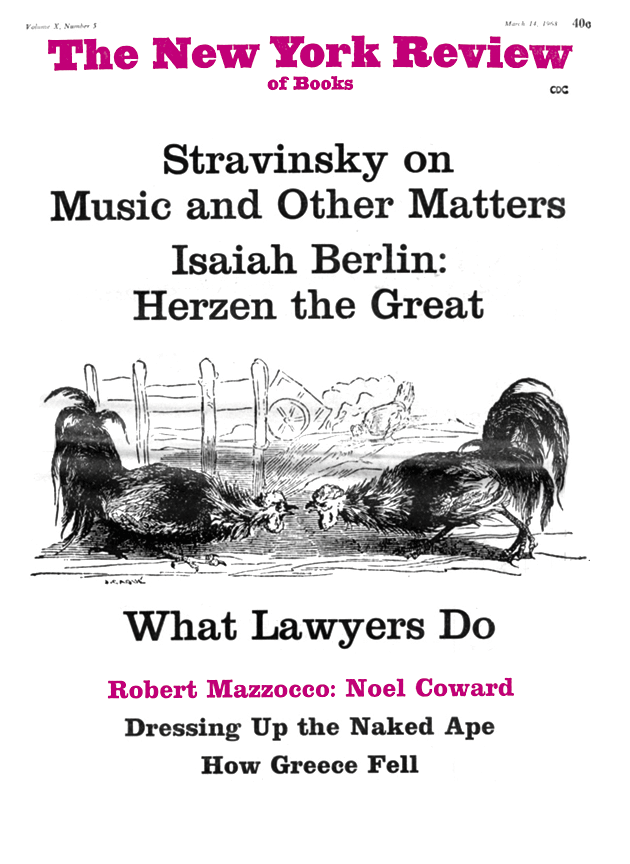In response to:
Gibbon Made Simple from the December 21, 1967 issue
To the Editors:
The Oxon. Regius Professor’s review of Swain’s Edward Gibbon the Historian [NYR Dec. 21, 1967] has raised in my mind two questions: (1) What is the responsibility of a publisher vis-à-vis a MS submitted; and (2) what is to be the attitude of a review toward the man who wrote the book under review?
Professor Trevor-Roper found…”that such a book should be published after the scholarship of Low, etc., is doubly depressing,” and I would agree heartily with him. Thus, a black mark for St. Martin’s Press.
But was the reviewer aware that his hard judgments of the book were directed against a man born in 1891, with a Ph.D. from Columbia in 1912, and who has taught for forty-one years at the University of Illinois? Certainly the caritas of a humane scholar must occasionally command either moderation or silence. Is it not true that one day, not so far off, Professor Trevor-Roper also will be known as “the former eminent scholar?” I seem to remember some angels (angeli non angles) proclaiming, Pax hominibus voluntatis bonae. Does the Regius Professor not remember, or was it a lapse?
Schafer Williams
Amherst, Massachusetts
H.R Trevor-Roper replies:
The short answer is that a bad book deserves indulgence if either
(1) The author is a young man who may mend
(2) The book is unpretentious and will do no harm
(3) The book is itself written with modesty.
None of these conditions apply to Mr. Swain’s book. Those who want their faults covered by “moderation” or “silence” should themselves cultivate these virtues.
This Issue
March 14, 1968


